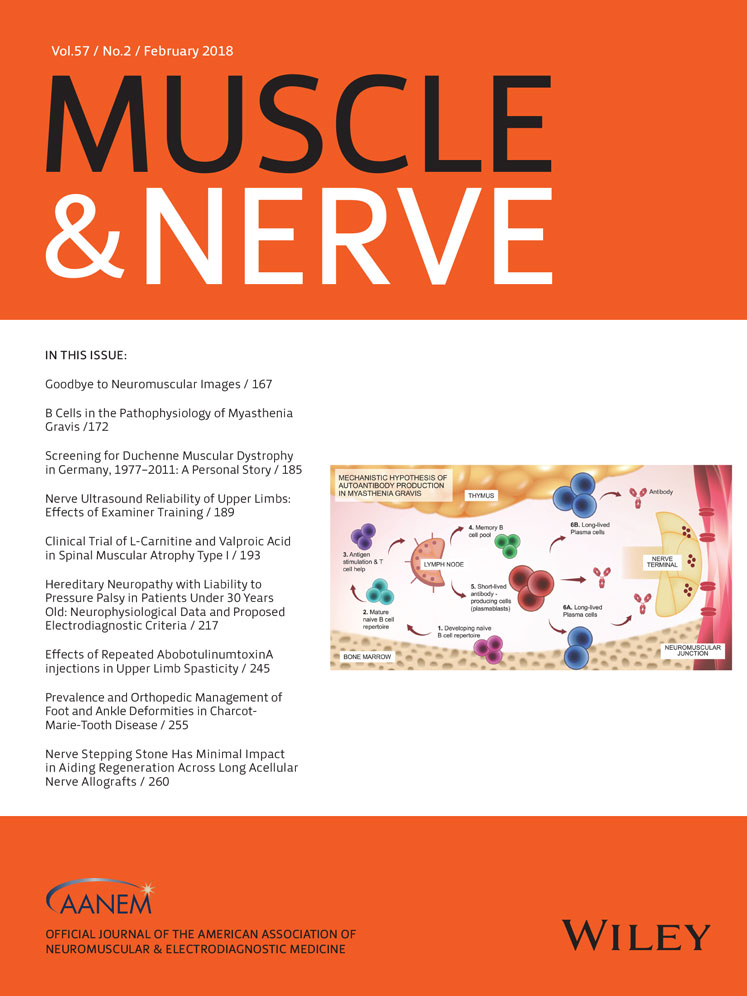Acute painful autoimmune neuropathy: A variant of Guillain-Barré syndrome
Funding: This work was supported by the Singapore National Medical Research Council (IRG 10nov086; CSA/047/2012; to NY) and by the Agence Nationale pour la Recherche (ACAMIN; to JJD) under the frame of E-Rare-2, the ERA-Net for Research on Rare Diseases.
Conflicts of Interest: None of the authors have any conflicts of interest to disclose.
ABSTRACT
Introduction
We present a painful small-fiber neuropathy variant of Guillain-Barré syndrome characterized by antecedent infectious symptoms, hyporeflexia, and albuminocytologic dissociation.
Methods
Two patients received intravenous immunoglobulin, one corticosteroids.
Results
The patients subsequently improved. Immunoglobulin G (IgG) antibodies in their acute phase sera strongly bound to murine small nerve fibers, and the binding disappeared during the convalescent phase. Serum transfer to a murine nociceptive model induced transient alteration in thermal pain responses.
Discussion
Our case series suggest that an acute transient immune response can be directed against small nerve fibers, and that patients so affected can exhibit features of Guillain-Barré syndrome. Muscle Nerve 57: 320–324, 2018




